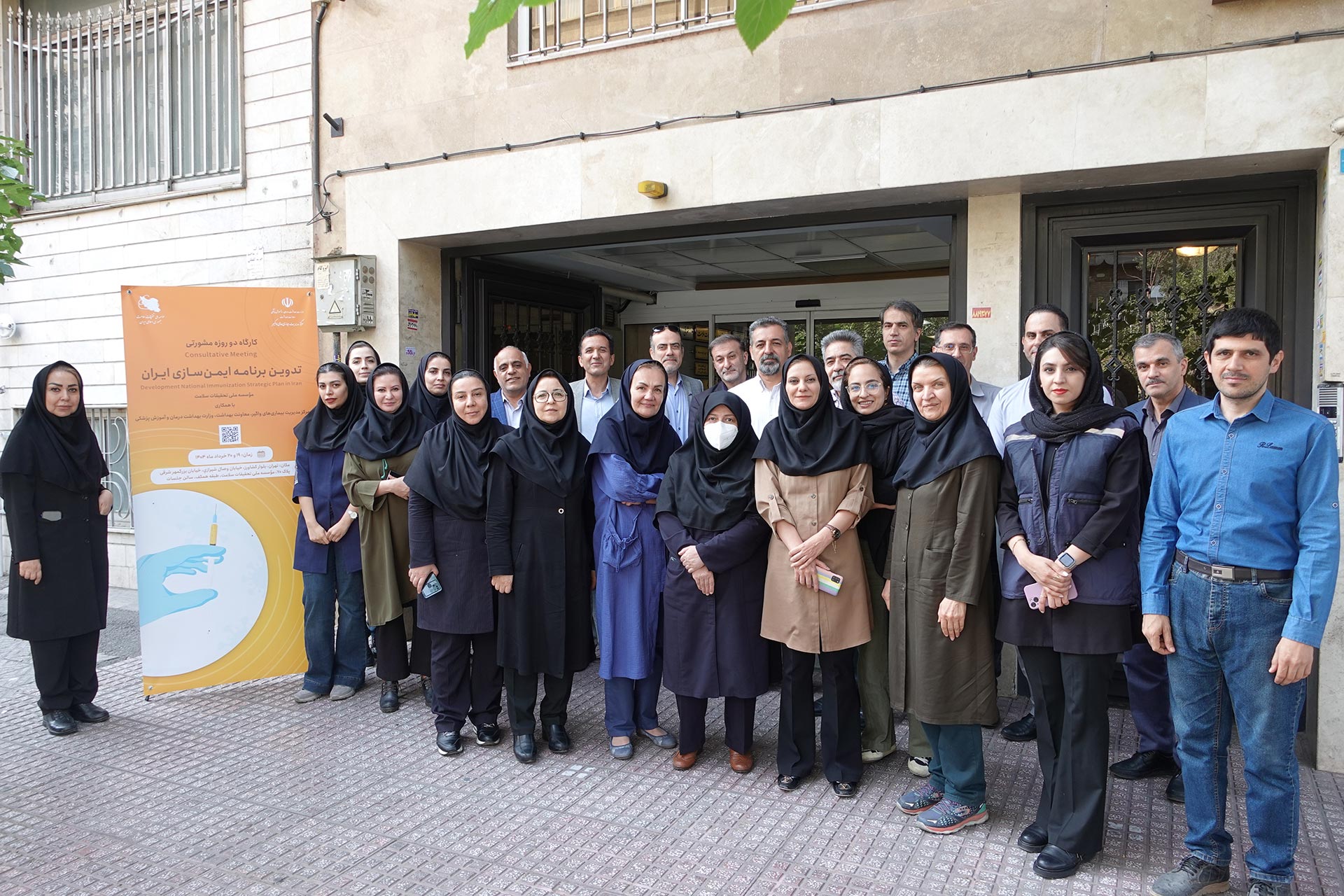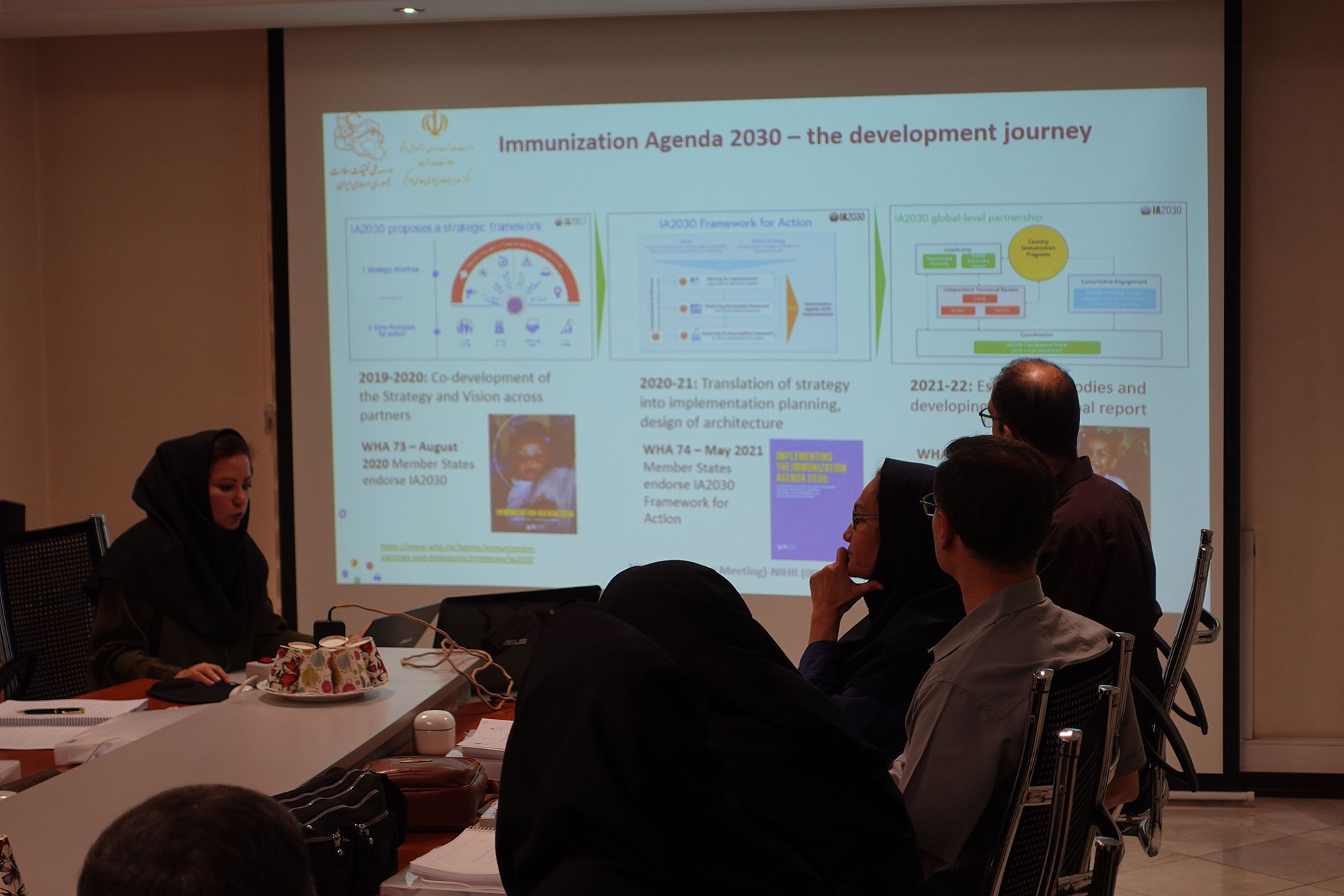 30 June 2025, Tehran, Islamic Republic of Iran – A 2-day workshop to develop Iran's National Immunization Strategic Plan was held from 9–10 June 2025 at the National Institute for Health Research (NIHR). The meeting gathered national experts and international partners to explore ways to strengthen the country's immunization programmes.
30 June 2025, Tehran, Islamic Republic of Iran – A 2-day workshop to develop Iran's National Immunization Strategic Plan was held from 9–10 June 2025 at the National Institute for Health Research (NIHR). The meeting gathered national experts and international partners to explore ways to strengthen the country's immunization programmes.
The consultative workshop provided stakeholders with a platform to review and update national immunization strategies, identify challenges and discuss ways to improve vaccine coverage across the Islamic Republic of Iran. Participants included representatives from the Ministry of Health and Medical Education, universities of medical sciences, the Iran Food and Drug Organization, the Pasteur Institute of Iran, the United Nations Children’s Fund (UNICEF) and the World Health Organization (WHO).
Head of the Communicable Diseases Department at WHO Country Office in Iran Dr Omid Zamani shared insights drawn from successful global immunization experiences and emphasized the importance of aligning with Immunization Agenda 2030 targets and adapting international best practices to the Iranian context and local health infrastructure. Focusing on country ownership and local adaptation helps ensure that the resulting strategic plan is evidence-based, practical and sustainable, and can be effectively implemented within the country.
 The workshop also heard from national leaders, including Head of the NIHR, Dr Ali Akbari Sari who highlighted the Institute's scientific support role, and Essential Programme on Immunization Manager at the Ministry of Health and Medical Education Dr Seyyed Mohsen Zahraei who reiterated the need for operational plans to be tailored to local conditions.
The workshop also heard from national leaders, including Head of the NIHR, Dr Ali Akbari Sari who highlighted the Institute's scientific support role, and Essential Programme on Immunization Manager at the Ministry of Health and Medical Education Dr Seyyed Mohsen Zahraei who reiterated the need for operational plans to be tailored to local conditions.
Participants engaged in specialized group discussions, delving into goals, implementation strategies and key assessment indicators. The outcomes of these collaborative sessions will form the foundation for the final version of the National Immunization Strategic Plan. Once finalized, the plan will be submitted to the relevant authorities for approval.
Another focus of the workshop was to establish effective monitoring and evaluation mechanisms to track progress and impact.
WHO's participation underscores its commitment to supporting the Islamic Republic of Iran by leveraging global knowledge for national health priorities. WHO is a committed partner to the Ministry of Health and Medical Education, providing technical guidance and support to strengthen essential health services, including robust and equitable immunization programmes that protect the population from vaccine-preventable diseases.
The workshop was supported by a grant from GAVI, the Vaccine Alliance.




